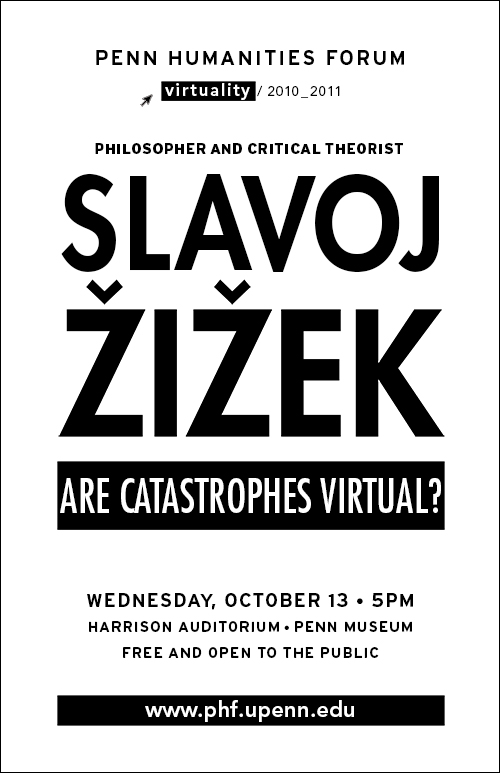Threats of catastrophe have become a part of our daily life: ecological disasters, social unrest, financial collapse, biogenetic freaks, terrorist attacks. Cultural critic Slavoj Žižek, dubbed “the most dangerous philosopher in the West,” argues that the virtual aspects of these catastrophes make up a crucial and often unanticipated part of their effects. Join him as he explores the virtual and ideological dimensions of life-altering events in a perilous world.
Slavoj Žižek is a senior researcher, Institute of Sociology, University of Ljubljana, Slovenia, and visiting professor at several American universities: Columbia, Princeton, New York, New School for Social Research, and University of Michigan. As professor of philosophy and psychoanalysis at the European Graduate School in Saas-Fee, Switzerland, he also conducts an Intensive Summer Seminar. A cultural critic and philosopher renown for his use of Jacques Lacan in a new reading of popular culture, Žižek is admired as a true "manic excessive."
Many of Žižek's over 50 books have been translated into 20 languages on topics ranging from philosophy and Freudian and Lacanian psychoanalysis, to theology, film, opera, and radical politics. His works include The Sublime Object of Ideology (2nd ed., Verso, 2009); The Metastases of Enjoyment (Verso, 2006); Looking Awry: Jacques Lacan through Popular Culture (MIT Press, 1992); The Plague of Fantasies (2nd ed., Verso, 2009); and The Ticklish Subject (2nd ed., Verso, 2009). He nearly won the presidency of his native Slovenia in the first democratic elections after the break-up of Yugoslavia in 1990. Žižek took his first Ph.D. in philosophy from the University of Ljubljana and his second in psychoanalysis from the University of Paris.
Philosopher and Critical Theorist



